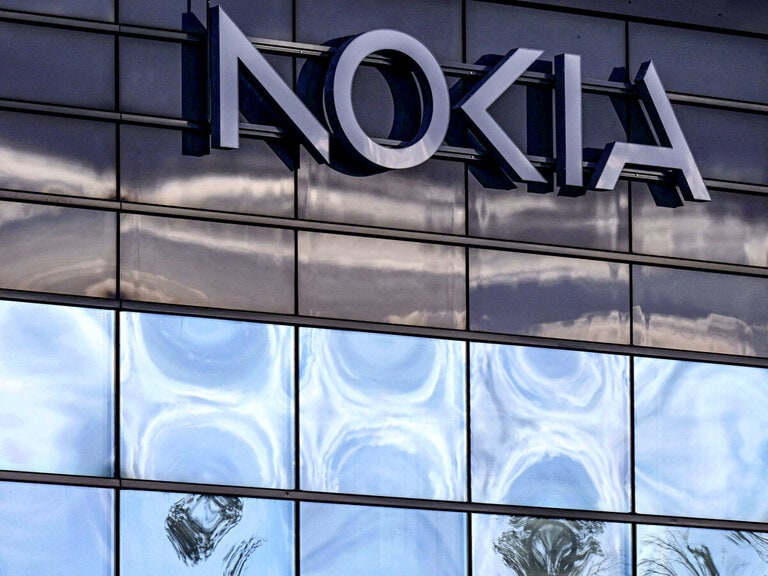Tilray [TLRY] is a New York-based cannabis and lifestyle company.
Its products include medical marijuana offerings, cannabis oils and vapes, and energy drinks.
According to the most recent figures available, Tilray is a leader in Canada’s cannabis market and is the fifth-largest craft beer brewer in the US. It is also one of the biggest medical cannabis businesses in Europe.
This stock spotlight will look at Tilray’s food and drink portfolio and explain why, even with a diversified business, hopes are unlikely to be high for TLRY stock unless the US legalizes cannabis.
Tilray’s US Retail Energy Drink Growth
In March, Tilray announced that a once-discontinued line of drinks, Hi*Ball Energy, is being brought back to retail shelves in the US through a partnership with Amazon’s [AMZN] Whole Foods Market. Hi*Ball Energy was a brand acquired by Tilray from Anheuser-Busch [BUD] at the end of 2023.
Since the acquisition, the brand, known for its zero-calorie and sugar-free drinks, has been sold online through Amazon.com. Between September 2024 and March this year, sales were up 68% as consumers sought out a healthier alternative to full-sugar energy drinks.
Jared Simon, President of Tilray Wellness, said in the press release that shoppers had been disappointed to lose the Hi*Ball Energy brand, but Whole Foods Market quickly realized this.
“Thankfully, our reliability and quality as an innovation brand gave Whole Foods Market the confidence to restore this important consumer relationship,” said Simon in the press release.
TLRY Stock Falls Below $1
A lack of updates on the US federal scheduling has dragged the Tilray share price down 73.68% in the past 12 months through March 27 to $0.65. The stock is down 51.13% since January 1, a selloff exacerbated by US President Donald Trump’s tariffs spooking investors and causing broader market concerns.
Last week, Tilray disclosed that it had been notified by the Nasdaq that TLRY stock is not in compliance with the stock exchange’s minimum bid requirement. The company has 180 days to regain compliance, which means that the closing bid price must be at least $1 for 10 consecutive days before September 21.
Tilray Beats Canopy Growth Corp and SNDL on Revenue
Even a strong earnings report might not be enough to elevate the Tilray share price. The company is due to deliver its Q3 2025 earnings on April 8.
Revenue for Q2 came in at $210m, up 8.7%, but fell short of analyst expectations of $217m. Despite the miss, Tilray CEO Simon Irwin told BNN Bloomberg following the earnings release that the results were “really good”.
Sales in its cannabis business fell a marginal 2.18% to $65.65m, but this was offset by 35.64% growth in its alcoholic beverage segment, to $63.08m. Cannabis revenue was impacted by the $1-per-gram excise tax the Canadian federal government charges — Tilray ended up paying $21.56m in excise taxes in Q2.
Net loss for the quarter was $85.28m, almost double the $46.18m loss reported in the year-ago period.
Another cannabis company that has a big alcohol business, SNDL [SNDL], reported a slight 3.7% rise in revenue for Q4. Fellow cannabis stock Canopy Growth Corp [CGC] reported a 5% decline in revenue for its Q3 ending December 31.
Here are how the fundamentals of Tilray, SNDL and Canopy Growth Corp compare.
| TLRY | SNDL | CGC |
Market Cap | $611.00m | $370.50m | $158.46m |
P/S Ratio | 0.64 | 0.62 | 0.48 |
P/E Ratio | 57.50 | N/A | N/A |
PEG Ratio | N/A | N/A | N/A |
Estimated Sales Growth (Current Fiscal Year) | 13.19% | 4.74% | -19.71% |
Estimated Sales Growth (Next Fiscal Year) | 5.61% | 7.83% | 7.68% |
Source: Yahoo Finance
The fundamentals of all three stocks reflect the challenge the cannabis industry faces in demonstrating growth and profitability.
While all three cannabis stocks look cheap relative to their current P/S ratios, they are still risky investments given the ongoing regulatory uncertainty.
TLRY Stock: The Investment Case
The Bull Case for Tilray
While there has been little for US cannabis companies to cheer about of late, “meaningful” marijuana reform could be “on the horizon”, according to Matt Gaetz, who was Trump’s first pick for Attorney General before he pulled out of the running.
Writing in a column for Tampa Bay News last week, Gaetz said he was confident that Trump will finally downgrade cannabis from Schedule I to Schedule III. This would classify the drug as less dangerous and enable marijuana businesses to claim tax credits and deductions that would allow them to operate on an even playing field.
Last May, Tilray announced plans to raise $250m for US expansion and acquisitions in anticipation of the downgrade.
The Bear Case for Tilray
The obvious headwinds are rescheduling delays, tougher restrictions and, potentially, higher taxes.
While Irwin has said Tilray’s long-term success is not dependent on US legalization — given its diversified portfolio, particularly its beverages business and demand for its non-alcoholic and energy drinks — the company is not yet profitable. And, if any of the above headwinds were to strengthen, there is always the risk that it could struggle to break even.
Conclusion
A lack of progress on US legalization means that cannabis stocks have failed to produce high returns for investors. If Trump were to decriminalize the drug, then it would help Tilray to expand into the US. Until then, though, sentiment around the cannabis theme is likely to weigh on Tilray’s share price.
Disclaimer Past performance is not a reliable indicator of future results.
CMC Markets is an execution-only service provider. The material (whether or not it states any opinions) is for general information purposes only, and does not take into account your personal circumstances or objectives. Nothing in this material is (or should be considered to be) financial, investment or other advice on which reliance should be placed. No opinion given in the material constitutes a recommendation by CMC Markets or the author that any particular investment, security, transaction or investment strategy is suitable for any specific person.
The material has not been prepared in accordance with legal requirements designed to promote the independence of investment research. Although we are not specifically prevented from dealing before providing this material, we do not seek to take advantage of the material prior to its dissemination.
CMC Markets does not endorse or offer opinion on the trading strategies used by the author. Their trading strategies do not guarantee any return and CMC Markets shall not be held responsible for any loss that you may incur, either directly or indirectly, arising from any investment based on any information contained herein.
*Tax treatment depends on individual circumstances and can change or may differ in a jurisdiction other than the UK.
Continue reading for FREE
- Includes free newsletter updates, unsubscribe anytime. Privacy policy





